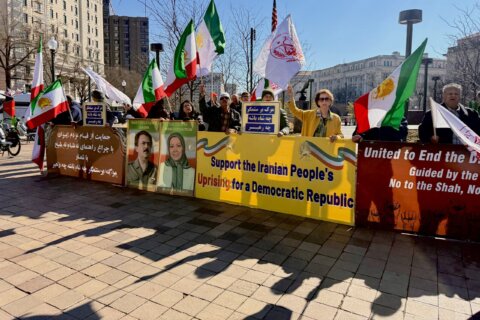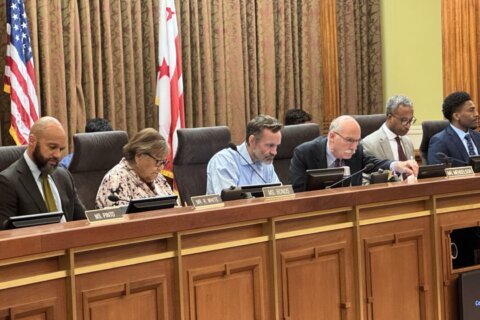The decision by the General Services Administration to choose Greenbelt over Springfield to be the home of the new FBI Headquarters has generated outrage from lawmakers in Virginia as well as top FBI officials, who have raised questions about the process that led to the decision.
Members of Congress are also raising some of those same questions.
A top GSA official answered questions for the first time in an appearance before a congressional subcommittee with oversight of public buildings. In the meeting, a lot of the same criticisms leveled by the FBI and the Virginia congressional delegation were repeated.
“The American people smell a rat here,” said Scott Perry, who chairs the House Transportation and Infrastructure subcommittee that oversees publicly owned buildings. “They smell a rat.”
He used his opening statement to blast both the FBI and the years long process to build a new headquarters.
“GSA adjusted the weighting of the factors considered, including increasing the value given to equity and decreasing the value for mission,” Perry said. “I’ve got to tell you, as a former member of the U.S. military, the mission is what drove everything I did, what time I woke up, how I dressed, how I prepared myself, what I ate, every single thing I did was dependent on the mission. All the other stuff was irrelevant to me, and it should be the same for the FBI. It should be the same.”
But Elliott Doomes, commissioner of the Public Buildings Service with GSA, repeatedly defended the decision and the totality of circumstances that went into making it.
“Greenbelt provides the best access to transportation and is the most transit accessible,” Doomes said. “It provides the government with the greatest project schedule certainty, offers the greatest opportunity to positively impact the Washington, D.C., region and has the lowest overall cost to taxpayers of all the three sites.”
He added that “the decision report is publicly available and details the authority’s analysis and ratings for all criteria for each site,” calling it the most transparent site selection process the agency has ever carried out.
But Perry also questioned why any disagreements between the three-person selection panel and Nina Albert, the former GSA official who made the call as the Site Selection Authority, always seemed to favor Greenbelt. Nicholas Dimos, the assistant director of the FBI’s Finance and Facilities division, raised the same point.
“The site selection plan allowed for this divergence, but I can say that within the FBI zone procurement shop, this is exceedingly rare,” Dimos said.
“The site selection plan gave the SSA authority to come to a different conclusion than the panel. But the consistent one directional nature of the changes favoring Greenbelt caused concerns for the FBI,” he added.
“These concerns were exacerbated by the fact that the SSA’s immediate prior employer was the owner of the Greenbelt site. The FBI raised its concerns in a briefing and through two letters to GSA. To move the project forward, the FBI requested GSA select a new SSA to rerun the final step of the process, picking an individual who did not have any previous affiliation with the three sites. Ultimately, GSA did not accept this request and our concerns were not sufficiently addressed.”
Doomes pointed out that Albert’s involvement with decisions impacting WMATA, a past employer of hers, including any decision involving the FBI Headquarters and Metro, was cleared by the GSA’s top lawyer months before the headquarters process was revived by Congress in 2022.
Asked how often a GSA SSA has ever disregarded the recommendation made by a site selection panel, Doomes couldn’t offer up an exact number, but pointed out that it happened in 2014, when the panel that was winnowing down a broader list unanimously chose not to include Springfield at all, only for the SSA making that decision to add it on there.
He also cited a federal courthouse in Harrisburg, Pennsylvania, where a site was chosen that wasn’t even on the list of finalists at the time.
Doomes also admitted that some political appointees in GSA were involved in the reweighing of the criteria earlier this year in conjunction with career employees and the FBI. But he said no one from outside GSA, and specifically the White House, played any role. Doomes also said the agency was willing to provide any documents or messages that came from the White House, if any existed.
Nina Albert, the former GSA leader who made the decision, is now the deputy mayor for economic development for the District. She was also scheduled to testify but backed out Friday.
WTOP reached out to the mayor’s office to find out why, but hasn’t gotten an answer.








